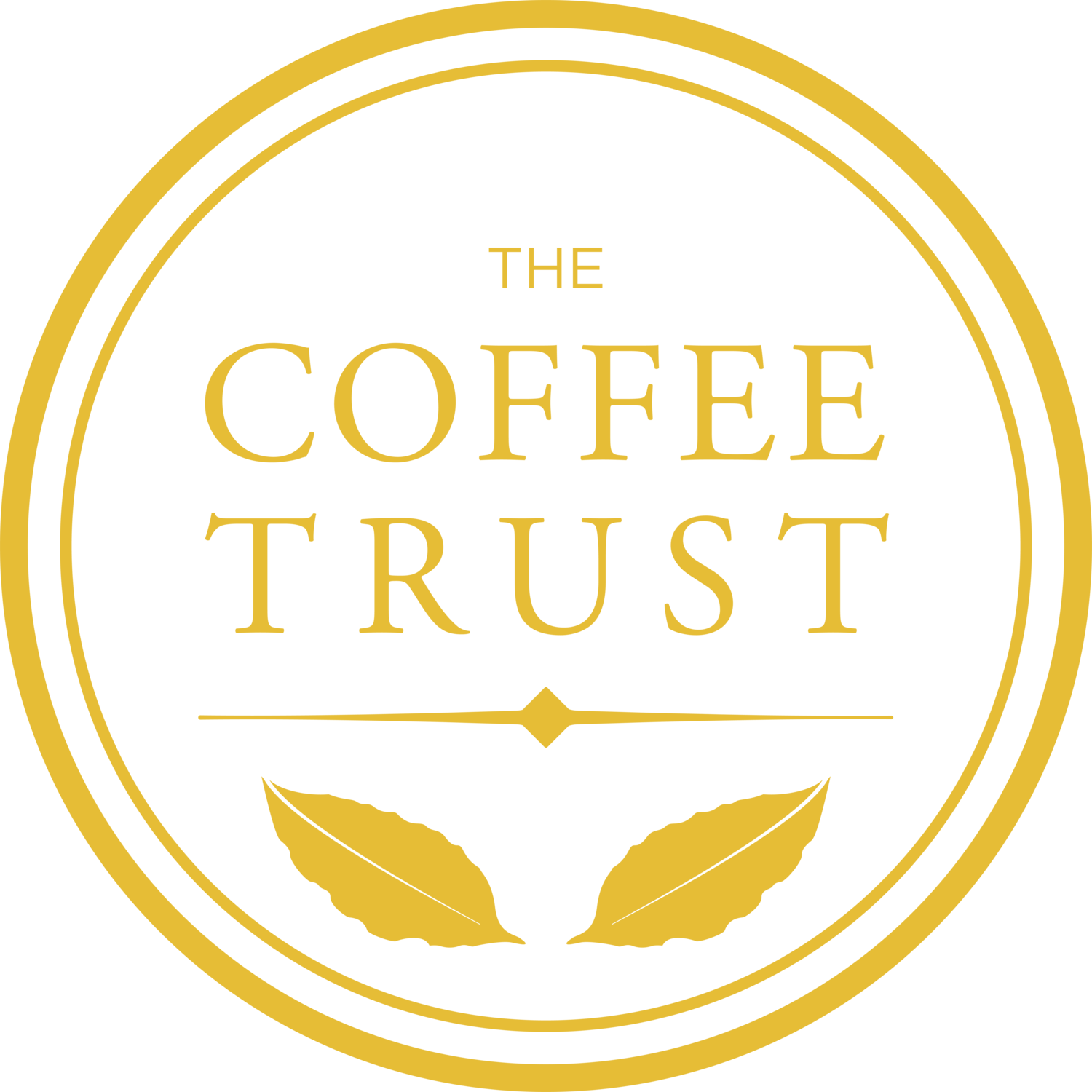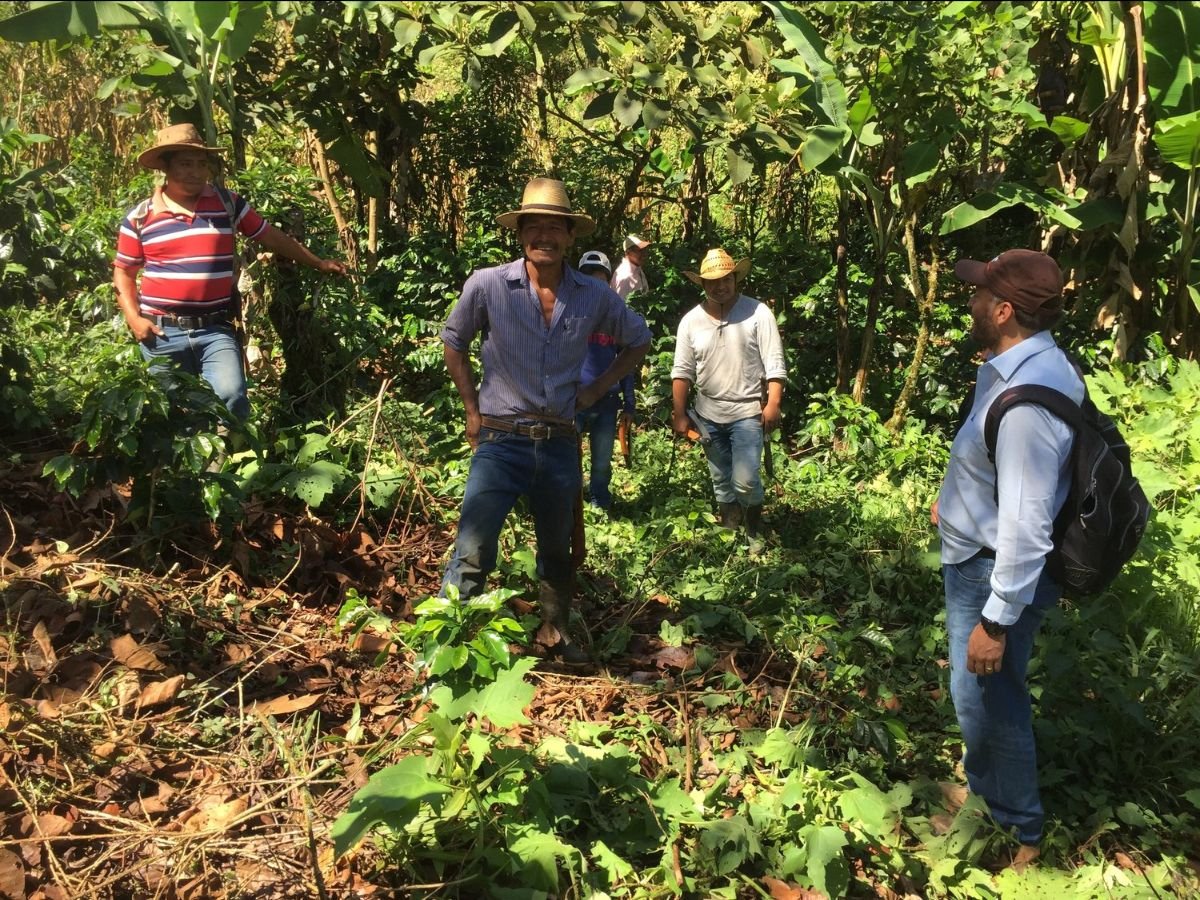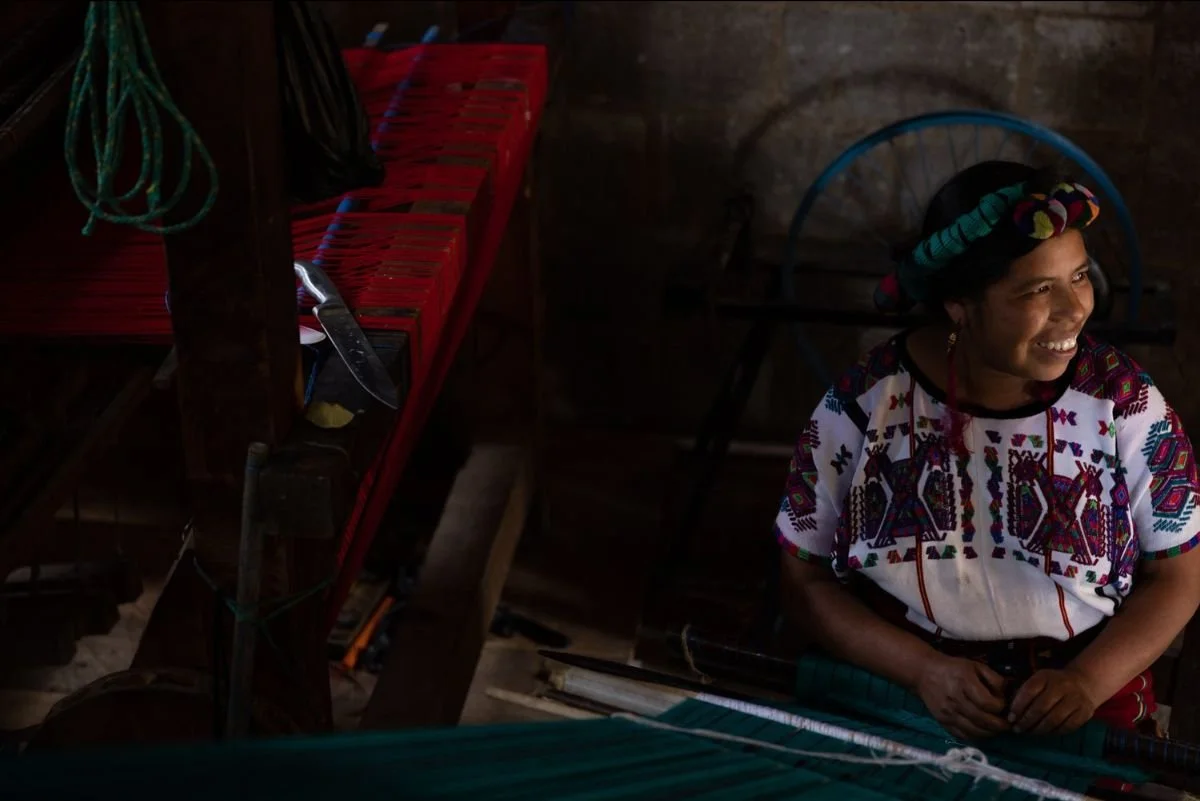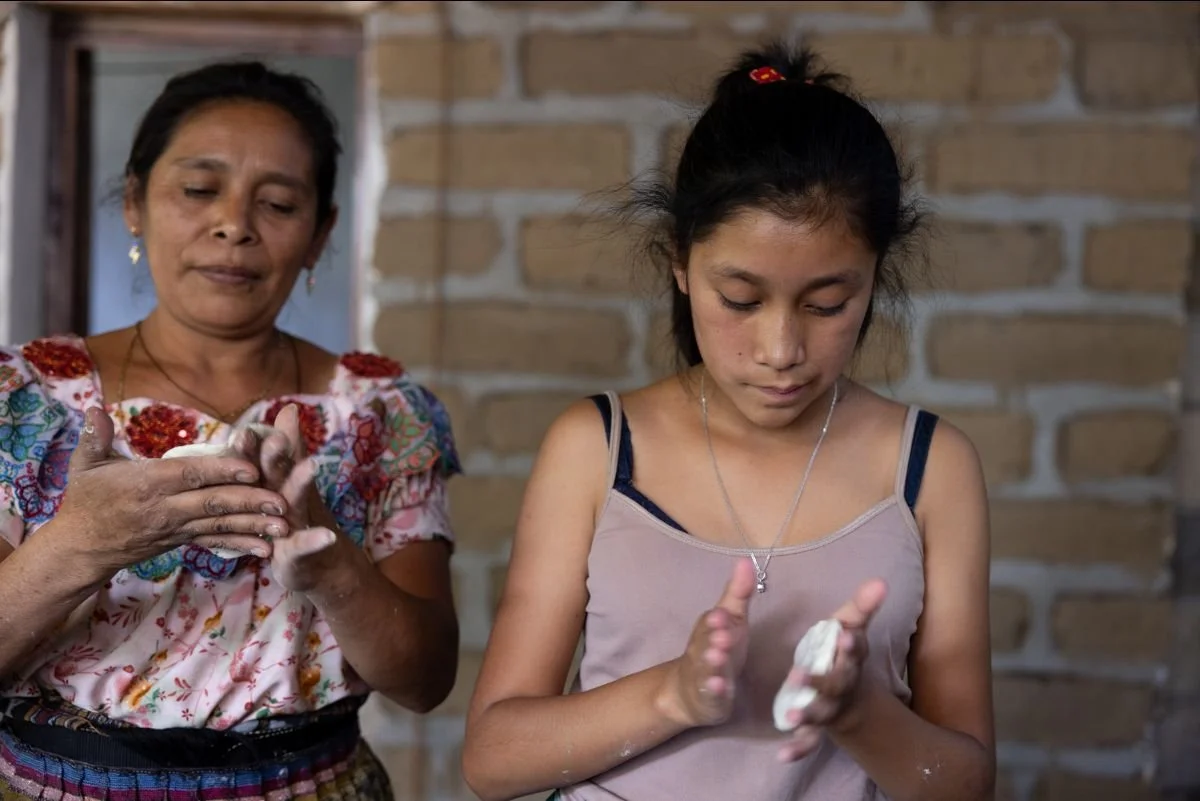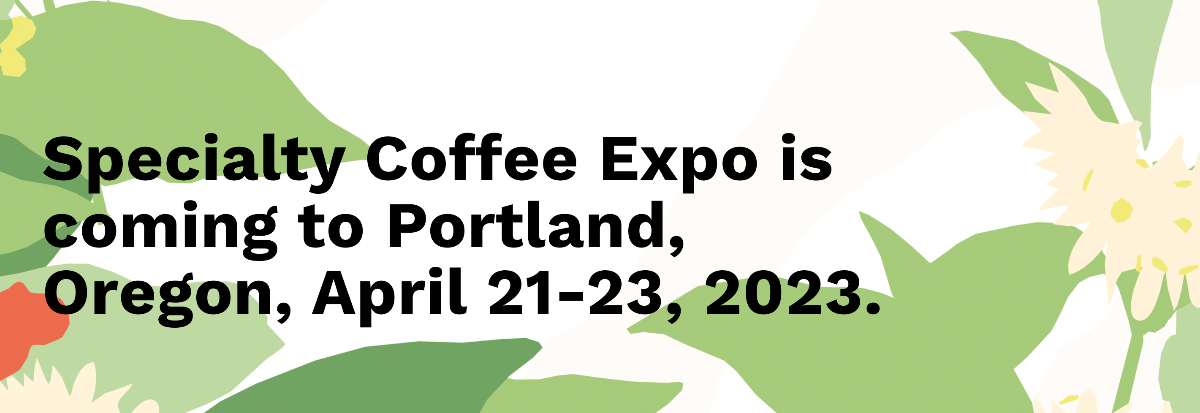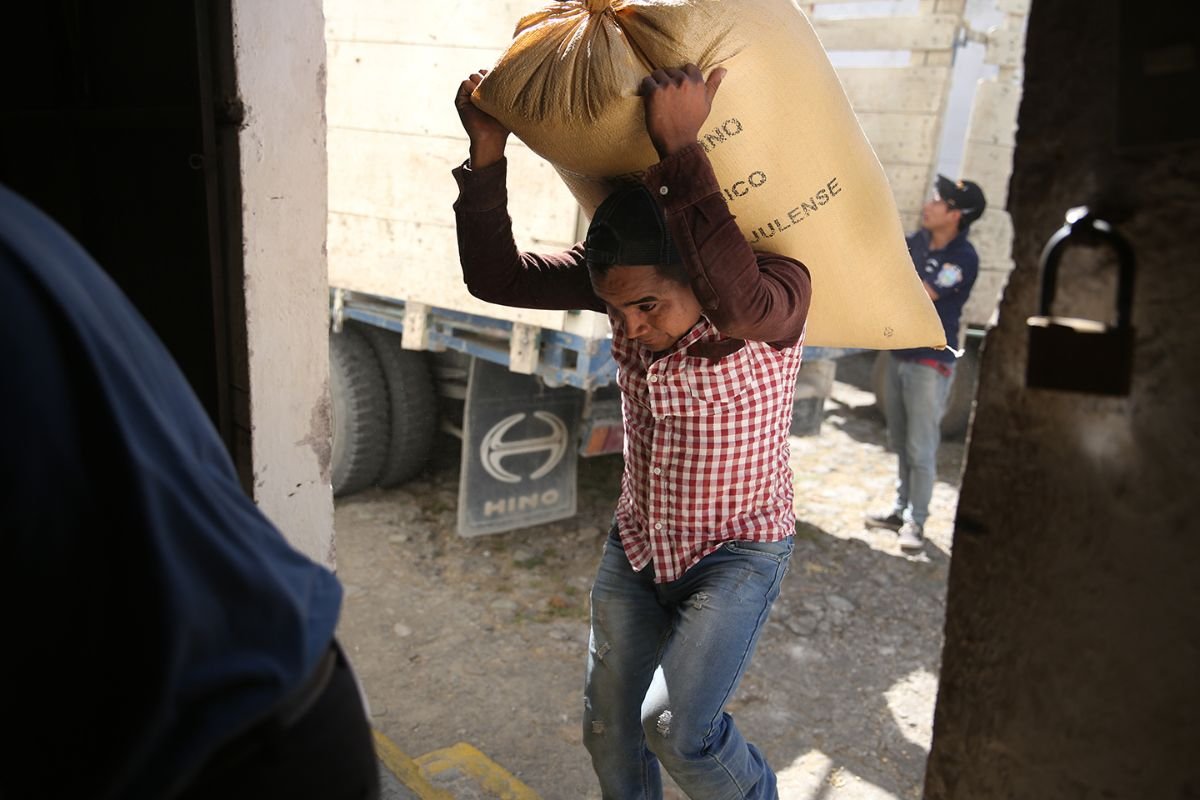Your Impact on Coffee Farmers in Guatemala
Dear Friends,
2023 has been a challenging year for coffee farmers in Guatemala. San Gaspar Chajul, where The Coffee Trust has worked for 15 years, is no exception. Despite the challenges faced by coffee farmers in San Gaspar Chajul, Guatemala, your continuous support has made a significant impact. Climate change, labor shortages, and economic difficulties have tested their resilience, but they persevere.
Coffee farmers and their families never give up. Through their faith in the future, we have learned to have faith in the future. Through their resilience, we have learned to be resilient. Your contributions have given us the means to use everything we have learned to collaborate with coffee farmers in San Gaspar Chajul for the last 15 years. You have been with us all the way. Here is what your contribution went to this past year:
Supported economic development in San Juan la Laguna by helping Visión Guatemala implement a sustainable Women’s Microcredit Program there.
Supported Visión Guatemala’s organizational development by focusing on policies and procedures, roles and responsibilities and leadership training.
Provided thousands of new coffee plants for Asociaición Chajulense to replace old ones that were unable to handle climate change’s resulting pathogens and increasing agricultural demands.
Supported middle and high school education in San Gaspar Chajul.
Provided university scholarships to indigenous students.
Provided efficient beehives for beekeepers to increase honey production and family income.
Provided financial management training for the Chajulense Women’s Microcredit Program.
With coffee farmers and their families getting up every day to face their incredible challenges, and meeting these hurdles head-on with your support, we hold a strong responsibility to maintain the quality of our work. We do this in honor of the coffee-farming families we partner with and to pay homage to our supporters who believe in us and allow us the privilege of this work.
Under the circumstances of the day, if you want to plant hope, you’ve got to dig deep.
Thank you for being a vital part of this journey,
Bill Fishbein, Founder & Executive Director
The Coffee Trust
A School for Chajul
Friends,
We would like to extend a huge heartfelt thank you to all those who have joined us this Giving Tuesday and shown your support for the Chajulense people. We have one more project to share with you today: Horizontes sin Limites.
The Coffee Trust has worked with Horizontes sin Limites (Limitless Horizons Ixil), a forward-thinking education program in San Gaspar Chajul since 2009. Horizontes provides scholarships for Chajulense youth to attend high school and university, tutoring for Chajulense youth including a Spanish language boot camp for indigenous children who do not speak Spanish, and established the only children’s library in San Gaspar Chajul.
Recently, Horizontes built a middle school in San Gaspar Chajul that will soon accommodate high school students, as well. The school places special emphasis on involving the entire family in the education of their children and honoring the local language and traditional Maya culture.
The Coffee Trust is a proud supporter of Horizontes sin Limites and the first-class education it provides, unheard of in the region until now.
We know there are many important programs reaching out to you today, but we have to ask one more time: Will you show your support this Giving Tuesday?
From all of us at The Coffee Trust, thank you.
Celebrating Giving Tuesday with The Coffee Trust
Today is Giving Tuesday, and every act of generosity counts.
Today we’re sharing with you updates from two of our projects: First, Women’s Savings and Microcredit and later, Horizontes sin Limites.
The Women’s Savings and Microcredit Project has had remarkable success in San Gaspar Chajul. Starting with 20 women coffee sorters who lost their jobs to a piece of sorting equipment, the credit program now has 2,000 women in two organizations: The Microcredit Association is made of up 80 groups of 20-25 women each and offers individual loans up to $300 without any collateral necessary except the collective guarantee of the group. The other organization, a Microcredit Cooperative, has approximately 500 members (many former members of the Association), who are eligible for larger loans of $500-$1000 that are backed up with collateral.
The women from the Association are in the process of building their own four-story building in San Gaspar Chajul, and have become a significant economic engine for the community, as well as the only low-interest lender to the poor in the entire Chajulense region.
The Coffee Trust provides training in financial and administrative management, as the extraordinary growth of the programs requires increased capacity and advisorship. The women also learn how to manage their loans and develop their own small businesses.
We invite you to support important projects like this one this Giving Tuesday.
Tomorrow is Giving Tuesday
Tomorrow is Giving Tuesday and we’re extending an invitation to give back to the communities where our favorite coffee is grown.
The town of San Gaspar Chajul in Guatemala’s Western Highlands is one of the poorest coffee-growing regions. The Guatemalan military tried to annihilate the Chajulense people during Guatemala’s 36-year armed conflict. After the war, well-intentioned but ill-informed, large nonprofit organizations provided giveaway programs to the devastated Chajulense people. The Chajulense culture, having survived the war, fell prey to a culture of dependency thrust upon them by outside organizations.
The Coffee Trust has supported health care, education, economic diversification, and agricultural development over the last 15 years, helping the region recover from the devastation.
The Giving Tuesday movement reimagines a world built upon shared humanity and radical generosity. Will you join us?
Program Challenges and Achievements
We are excited to share some news from origin. The Coffee Trust is proud to be partnering with Asociación Chajulense in San Gaspar Chajul as they continue their mission to protect their coffee production against various threats that have been plaguing their crop.
Bill, our founder and executive director with Arcadio, the manager of Asociación Chajulense.
The Challenges
In the world of coffee production, there are countless challenges that farmers must face. Among them are fungi (such as “la roya,” or coffee rust), “la broca” (the notorious coffee bean boring beetle), a myriad of pathogens, and the ever-escalating challenges posed by our rapidly changing climate. These challenges have been pushing coffee plants beyond their normal life cycle and threatening the livelihoods of countless coffee farmers.
A Forward-Thinking Approach
To tackle these unpredictable occurrences head-on, Asociación Chajulense has adopted an innovative and forward-thinking approach. They hope to replace 20% of their coffee crop each year with younger, more resilient coffee plants. The younger coffee plants are better equipped to withstand the various challenges that coffee farming presents.
Over the course of the next five years, Asociación Chajulense aims to have 100% of their coffee production harvested from coffee plants no more than 5 years old. This strategy is not only about short-term resilience but also about securing the long-term sustainability of coffee farming in San Gaspar Chajul.
This Year's Achievements & Looking Ahead
Asociación Chajulense is taking giant strides towards their goal. The Coffee Trust is supporting Asociación Chajulense in planting a whopping 300 thousand new coffee plants. This project takes an aggressive position against the perils of climate change and reflects the commitment and dedication of Asociación Chajulense to the well-being of their community in San Gaspar Chajul.
The Coffee Trust is honored to be a part of this transformative initiative, and we invite you to join us in supporting Asociación Chajulense in their mission to protect and renew their coffee production.
Stay tuned for more updates and stories from origin as we continue to work with coffee farming communities in Guatemala!
Program Updates
Coffee
We are working closely with the local coffee cooperative, Asociación Chajulense, to replace 300,000 old coffee plants with new ones this year. While a changing climate continues to present new challenges for coffee production, the cooperative has found that younger plants are more resilient against these volatile conditions and more resistant to pathogens. Our goal is to help Asociación Chajulense replace 20% of its coffee plants this year, and to maintain our long-term commitment to the association as it continues replacing older coffee plants with new ones each year.
Women’s Savings and Microcredit
ACMUV, the very successful Chajulense Women’s Microcredit Association, has created a new Women’s Microcredit Organization, COMUVI. COMUVI is a Microcredit Cooperative. Unlike an Association, a Cooperative in Guatemala can operate exactly as a bank. This means that COMUVI can offer interest bearing savings accounts to local residents that will generate far more capital for loans to the local community. ACMUV can offer larger loans to individuals and smaller groups of women. Women from the association who have had successful business experiences will become eligible to join the Cooperative as individuals and access larger loans.
We are supporting this organizational restructure by hiring a consultant to advise the entire process: organizational development, administration, finances, credits, loans along with the guidance of our program director.
Visión Guatemala
Visión Guatemala Atitlán is an indigenous women’s group, located in San Juan la Laguna on the shores of Lake Atitlán. In 2022, we introduced Visión Guatemala Atitlán to ACMUV, the very successful microcredit program that we have been supporting in San Gaspar Chajul. The meeting was so successful, a similar project almost replicating the ACMUV program has begun in San Juan la Laguna.
Visión Guatemala hopes to provide enough small loans that will generate enough interest to contribute toward their own sustainability. Visión Guatemala has our support, ACMUV, and COMUVI to help them achieve their goal of reaching financial sustainability in 5 years.
Will we see you in Portland next month? Our team is headed to the Specialty Coffee Expo, April 21-23. We'll be exhibiting at Booth #842, please stop by!
Happy Holidays from The Coffee Trust
Happy Holidays and Warm Wishes for 2023!
We at the Coffee Trust are truly grateful to you for following and supporting our work with coffee farmers and their families. Your support this holiday season contributes to community-driven development projects in women's microcredit, education, and more.
From all of us at The Coffee Trust, wishing you a warm and healthy holiday season and a happy new year!
Thank You For Your Trust
Friends,
Recently, my wife, Donna, and I hiked one of the many ancient Anasazi Indian sites in Chaco Canyon, New Mexico. We set out to find Pueblo Alto, a mysterious architectural site located on an enormous plateau that is only accessible by climbing a steep, narrow, rocky passageway. Once on the plateau, there are no trails, just cairns—small, odd-sized rocks stacked atop each other to form pyramid-like structures that guide the way.
These cairns are nearly invisible as they stretch across the natural landscape of the plateau. To find our way from cairn to cairn, oftentimes Donna and I had to venture well past the last cairn in search of the next. In between cairns, the only reliable guide we had was trust, trust that we would eventually find our way to the next cairn. On this vast, barely marked plateau, in the blistering hot sun, we got lost.
While lost and searching for cairns, I found myself thinking of coffee producers and how they are often searching for their own cairns, for their next step towards a better life. At the Coffee Trust, we don’t offer a map for producers to find their way. But like cairns, we help producers find their next step. Our role is to ask questions, for producers to visualize their own goals, prioritize them and identify the challenges they see ahead. Their answers are framed within the margins of their own priorities, their own values and their own culture. As their own answers get them closer to their own goals, they gain trust in themselves and experience the empowerment that comes with self-reliance.
In the grand scheme of things, we are merely facilitators who deeply believe in a process that encourages producers to create their own projects. Without any one of us, we would be lost on the plateau. Thank you for your trust in us. Thank you for your trust in the producers. Thank you for your trust in partnering with all of us toward making a better, healthier, and more sustainable future for coffee producers in Guatemala. Some of the projects we’d like to support this coming year:
*Vision Guatemala (VG), our partners in San Pedro la Laguna collaborated with our partners, Chajulense de Mujeres by implementing a microcredit program of their own. The Coffee Trust is now collaborating with VG to help develop the program and strengthen leadership skills at VG.
*Supporting Education: The Coffee Trust continues to support the new school in Chajul spearheaded by Horizontes sin Limites, offering high-quality education to local children and a pathway to university education.
*University Scholarships: In 2023 The Coffee Trust will continue to provide scholarships to deserving Chajulense students who otherwise would have no chance at getting a college education. Our latest Chajulense graduate is now the technical advisor for the local coffee association, Asociación Chajulense.
Your generous contribution will make a world of difference for the indigenous coffee producers and their families in San Gaspar Chajul, Guatemala. Please make it today.
Thank you,
Bill Fishbein, Founder and Executive Director
One Last Time...
You make our work possible. Our work at The Coffee Trust is funded by grassroots efforts and contributions from individuals and businesses that believe in the power of self-managed development projects for indigenous communities.
We believe that coffee producers need and deserve an equitable voice in the coffee industry--to be treated as equitable partners in the coffee marketplace, and to determine for themselves, based on their own culture, values, and priorities, what can be done to strengthen their communities.
In these final hours of Giving Tuesday, we're asking one last time for your support.
From all of us at The Coffee Trust, thank you!
Celebrating Giving Tuesday
Friends,
Today is Giving Tuesday, a global movement of generosity.
We at The Coffee Trust strongly believe that the future of specialty coffee is threatened by the disproportionately low prices that coffee farmers receive for their crop. Since 2008, we have worked to support coffee farmers and their families in strengthening their coffee production and quality through agricultural development projects, diversifying their incomes so they can continue to produce coffee, while not relying solely on income from coffee, acquire grade school and university education, and access capital to start small farms, stores, and other businesses.
Your contribution this Giving Tuesday directly supports empowering coffee farmers to raise healthy families and create thriving communities. Will you join us?
Tomorrow is Giving Tuesday
Tomorrow is Giving Tuesday! Join us in a global movement of generosity and celebration.
Giving Tuesday was launched in 2012 with the goal of making giving more central in our daily lives. Today, Giving Tuesday has grown to a community of millions of givers across every continent.
Your gift to The Coffee Trust this Giving Tuesday supports education and community development for coffee farmers and their families. To learn more about our programs, visit our website. To make a contribution on Giving Tuesday, visit the link below.
Happy National Coffee Day!
Happy National Coffee Day!
Today we're celebrating coffee and those who work at all stages of the supply chain to make our morning cup possible.
We're also sharing a story that highlights the importance of farmer-to-farmer training, which is essential to The Coffee Trust's mission. This particular story is about Rafa, a farmer Bill, our Executive Director, and Paula, our International Program Director, visited on their most recent trip to Guatemala. If you missed the first part of this story, you can view it here.
We already know Rafa is an ambitious farmer. Recently, Rafa was interested in the possibility of joining together with other coffee producers in Chajul, to sell specialty coffee directly to buyers.
With the goal of producing the highest quality coffee possible, Rafa went to his cousin, Roderico. Roderico was a technician (trainer) in our Roya Recovery Project, where coffee farmers were trained in organic agricultural techniques to strengthen the health of their plants and the soil to overcome the devastating coffee rust fungus. Having also received a scholarship from The Coffee Trust to study agricultural engineering, Roderico now oversees the coordination of the local coffee cooperative's (Asociación Chajulense's) technical assistance initiative.
One important piece of the Roya Recovery Project was the use of Effective Microorganisms (EMs), pictured above. EMs are anaerobic beneficial bacteria that are sprayed on and around the coffee plant, killing the roya fungus on the leaves and starving it in the soil, while increasing soil fertility.
Rafa wanted to learn how to use EMs from Roderico.
Now, Rafa is growing corn to feed his family, and applying EMs to strengthen the plants. He also uses EMs on his nursery coffee plants.
Why is this so important? The Coffee Trust's methodology revolves around farmer-to-farmer training, relying on farmers sharing their knowledge and experience with each other to help improve agricultural, educational, and technical practices. It is a highly self-empowering method of teaching that involves a great deal of hands-on training and learning.
Farmer-to-farmer training allows farmers to gain knowledge that directly applies to them, aligning with their values and culture, and which they can in turn share with their neighbors--thus, our projects can extend well beyond the boundaries of our own organizational capacity.
Rafa has learned from this farmer-to-farmer practice, and continues to experiment with innovative farming methods that allow him to support his family and the long-term health of his farm and his hives.
The Coffee Trust works to help indigenous coffee farmers improve their agricultural practices, diversify their incomes, and raise healthy families. We do this through projects in agricultural development, honey production, economic diversification, education and scholarships, and women's savings and microcredit. We also help respond to unexpected challenges and urgent needs in the Ixil region of Guatemala, such as distributing coffee plants to replace those lost in the 2020 hurricanes, and supporting infrastructure upgrades to keep schoolchildren safe.
Our work is possible because of contributions from our community. Will you join us in supporting coffee farming families this National Coffee Day?
Tomorrow is National Coffee Day
Tomorrow is National Coffee Day!
Tomorrow we're celebrating our favorite morning beverage, and no celebration would be complete without an acknowledgement of those who made it possible, from farmer, to importer, to roaster, to barista, to you.
Bill, our Executive Director, and Paula, our International Program Director, recently returned from a trip to Guatemala, and we're excited to share a story with you from their trip: Rafael's story.
Rafael, who goes by "Rafa," lives in Chel, Guatemala and is a member of the organic, fair trade coffee cooperative ASOBAGRI. A smart, hard worker, Rafa makes enough money selling coffee, cardamom, and honey to support his family.
Rafa is also a member of the CopiChajulense honey cooperative. He serves on the auditor committee for the CopiChajulense board, making sure the cooperative's finances are in order, and is also one of their best honey producers.
At 50 hives, Rafa's apiary is not the largest of the beekeepers' in the cooperative, but his skill is what makes him so successful. He has developed a method of raising queen bees to improve the productivity of the hives--an unusual task that requires exact timing and close monitoring.
Stay tuned... we'll be sharing more of Rafa's story tomorrow!
National Coffee Day is September 29
National Coffee Day is September 29th!
While we certainly don't need any excuse to enjoy a cup, we're planning to celebrate the only way we know how--with a healthy helping of coffee, and sharing stories of those who make it possible.
This year, we're sharing Rafael's story, a coffee and honey farmer we visited on our most recent trip to Guatemala.
Stay tuned to hear his story this National Coffee Day, and we hope you have a wonderful holiday!
Program Update
Honey Project
The Coffee Trust continues to match CopiChajulense (the honey cooperative) with an efficient beehive project in which, hive for hive, The Coffee Trust matches CopiChajulense's purchase of more efficient hives. 180 hives have already been distributed, with another 180 currently being built. These improved beehives should result in greater honey production. Our training for the beekeepers to effectively respond to the challenges of working with bees in a changing climate continues through Edgar, a designated trainer within the cooperative.
Women's Microcredit
The women's microcredit program now exists as two organizations: the original Association and a Cooperative. The Association continues to give small loans (up to $300) to individuals who are part of a larger group (25 or so). Loans are issued without collateral from the individual borrowers, but each group is collectively responsible for all individual loans. The new Cooperative offers larger loans to individuals who have proven to have excellent repayment records in the original credit program.
Adding a second organization with a different loan system is challenging. The Coffee Trust hired Walter Hillerman, a consultant to help the women supervise their fast-growing program. The women are now paying Walter on their own. We have also hired a second consultant, Jorge Recinos, to help advise the women on managing two organizations, focusing on operations, roles, and responsibilities. Jorge meets with the women for one week each month, and then reports back to Paula and Pepe, our team in Guatemala, to review his work. These consultants have served to stabilize the dramatic growth of the program. As always, we provide a number of different resources to the program and provide assistance while the organization makes its own decisions.
Education
We are currently providing scholarships for 4 Ixil students. Rosa Caba (top left) is in her last semester of the Public Accounting and Auditing program at Mariano Gálvez University. She has been applying her knowledge as the General Accountant for the Chajulense Women's Cooperative. Rufina Xinic (top right) is studying for a Bachelor of Science in Business Administration at Mariano Gálvez University. She is also working for the Chajulense Women's Cooperative, registering payments and monitoring the loan portfolio. Rosalia Gonzalez (bottom left) is studying Social Work at Mariano Gálvez University, and is also the director of Visión Guatemala (learn more about the organization below). Diego Hernandez (bottom right) is studying Political and Social Sciences at Rafael Landívar university. Diego is a Knowledge Management Promoter at Visión Guatemala, collecting information that shows the impact of the program on the participating women and their families.
Visión Guatemala
Visión Guatemala is a new organization in San Juan La Laguna, one of the villages surrounding Lake Atitlan. They have a women-centered approach to development, and are interested in learning from the Chajulense Women's Microcredit program. They have visited the program and are being guided by Paula in developing their own microcredit program.
Read Bill's recent article published in Coffee Talk Magazine here: Ensuring Sustainability: A People-Centered Partnership (on Page 12)
Specialty Coffee Expo Panel
Save the Date: Friday, April 8
The SCA Expo is quickly approaching! Bill Fishbein, our Founder and Executive Director, will speak on a panel hosted by the SCA: Perspectives on Gender and Racial Equity: No One Size Fits All. On Friday, April 8th from 10:15 am to 11:15 am the panel will discuss challenges faced by marginalized groups, and how empowerment through knowledge and decision-making power can lead to community-driven solutions. Panelists include leaders of organizations that are working to advance social equity in the coffee supply chain. For those of you attending the Specialty Coffee Expo, we hope to see you in Boston!
Updates from the Field
Friends,
Here's some news about our projects in Guatemala.
After the community of Chacalté successfully completed the perimeter wall around their primary school to support the safety of their students, we assisted in the building of a second perimeter wall around the secondary school, pictured here. This wall is close to completion, and Bill, our Founder and Executive Director, is planning to visit the community in March to see the completed project and discuss other development opportunities with the leadership in Chacalté.
Chajulense de Mujeres, the very successful women’s microcredit project, issues loans to individual women and trains them in financial literacy, household budgeting, and business skills.
Paula and Pepe, our team in Guatemala, are serving in advisor roles for Chajulense de Mujeres. They are supporting the project's leaders and advisors in establishing systems to track loans, business activities, repayment rates, and other data—ensuring the project can effectively monitor its impact.
You may remember Roderico, a Coffee Trust scholarship recipient who studied agricultural engineering. We are excited to share that Roderico, who was also a technician in our Roya Recovery Project, is now overseeing the coordination of Asociación Chajulense's technical unit. He coordinates promoters and technicians who are out in the field providing technical assistance to the coffee cooperative's farmers. Roderico is a coffee and cardamom farmer himself, and we're thrilled to see him taking on a leadership role in the cooperative.
Vision Guatemala, a new nonprofit organization supporting communities around Lake Atitlan in Guatemala, is forming a women's microcredit program. The Coffee Trust will assist in its development, and staff from Vision Guatemala will visit Chajulense de Mujeres in March with Bill and Paula.
We're exhibiting at the NCA Virtual Convention, March 8-10. Will we see you there? Visit our virtual booth and say "hello!"
Learn more about the convention and register here.
We Are Coffee People
Friends,
Just as the pandemic continues to disrupt life here in the States, it continues to disrupt life in San Gaspar Chajul. Labor shortages and lack of materials are disrupting project development in the Ixil region just as they are in the States.
While faced with these challenges in 2021, The Coffee Trust helped rebuild homes and coffee farms that were washed away during last year's hurricanes. We supported the CopiChajulense honey producers with new hives. We worked with the women’s micro-credit and savings group to form a lending and savings cooperative. We supported Ixil youth with higher education scholarships and we helped the small township of Chacalté improve security for their primary school.
And, we aren’t stopping there.
In 2022:
We will improve security at Chacalté’s secondary school, improve the academic curriculum, and access to the internet. We will work with Chacalté on an ambitious project stimulated by the town’s local effort to build a road from Chacalté to Juil. The road will open a pathway from Chacalté to more than 15 villages that currently bypass Chacalté completely, unleashing a wave of economic activity for the town. We will also support training and entrepreneurial efforts in Chacalté for the people to capitalize on the newly developing economy.
We will provide training for the women’s micro-credit and savings group to develop a protocol for the new cooperative that will offer larger loans to members who have had successful experiences through group loans and will offer members better interest rates on savings than interest rates from traditional banks.
We will restart the Mountain Microorganisms project with Chajulense coffee farmers that had stalled due to Covid-19.
We will continue supporting the CopiChajulense honey producers with new hives.
We will continue to offer higher education scholarships to Ixil youth. Three of our previous scholarship recipients are working for Asociación Chajulense, CopiChajulense and Asociación Chajulense de Mujeres.
We are developing a new opportunity around Lake Atitlan with a women’s organization with a unique women-centered/whole family initiative. More on that later.
We have a lot to accomplish in 2022 and we know the pandemic will be challenging us throughout the year. But, we are coffee people. And, we are all in this together.
With 33 years of experience in development, most in Guatemala, we have learned so well that if you want to plant hope, you have to dig deep. Please dig deep this holiday season for our producer partners in Guatemala.
From all of us at The Coffee Trust, wishing you a warm and joyous holiday season.
P.S. Higher education scholarships in Chajul make a world of difference and last a lifetime.
A full five-year scholarship costs $6,000.
A one-year scholarship costs $1,200.
A one-quarter scholarship costs $300.
A one-month scholarship costs $100.
National Coffee Day is September 29th
National Coffee Day is September 29th, and we want to hear from you!
Record a ~1 minute video about your love for coffee and send it to info@thecoffeetrust.org. Then, be sure to keep an eye on our social media on National Coffee Day as we share your videos.
Here are some questions/topics you might consider to get you started:
Tell us about the joy coffee brings to your life.
Do you have any rituals around coffee?
What would you share with the coffee farmer and his/her family that is behind your favorite coffee?
And then...
The holidays and year-end will be here before we know it, and soon after, we'll be celebrating First Cup!
First Cup is all about celebrating coffee farmers and their families with your very first cup of coffee in the new year. Each New Year's Day we partner with cafes to host fundraisers in support coffee farmers.
If your cafe is interested in having a First Cup celebration, contact us.
A Visit to Ixil
Our International Program Director, Paula Rodriguez, recently took a trip to the Ixil region of Guatemala to check in on our projects there.
Her trip took her to Chacalté, where we joined the local school in a modest construction project to keep school children safe from unwanted intruders as well as forest animals that sometimes make their way into the school grounds.
Chacalté is particularly inspiring for their resilience. After the entire community burned during the Guatemalan Civil War, the residents all returned home to rebuild a new life. There are 100 families living in Chacalté, and they are deeply committed to investing in their community, with strong organization. These families have been able to build a primary school, a secondary school, and a health care center, and surrounding towns have begun sending their children to school in Chacalté because of the great resources and leadership that exists in this community.
We are excited to work with the small village of Chacalté. The people from this struggling community make wise decisions for their future. They are intelligent, creative, and most importantly committed to ensuring the children of Chacalté build a better future for their families.
It is the rainy season in Guatemala, and that means there's a rush to replant coffee plants that were washed away in Hurricanes Eta and Iota last year. We are supporting the distribution of coffee plants for farmers who lost theirs in the storms, and they are being planted very quickly, so that they have a chance to grow strong roots before the rain dries up—coffee farms don't have irrigation systems in this region.
Approximately 500 farmers have received 200,000 coffee plants so far. There are still 240,000 more plants to distribute to a total of 1,100 farmers.
COVID-19 continues to loom ominously over Guatemala and villages like Chacalté. Despite the challenges, we continue to work with local communities responding to new issues that arise. Our continued work is reliant upon our generous contributors. If you have not yet made a contribution to The Coffee Trust this year, please consider making a donation and supporting our work. Thank you.
